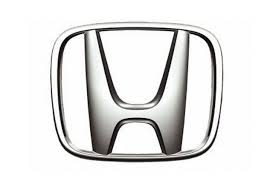Insight L3-1.0L Hybrid (2000)

1. Raise the front of the vehicle, and support it with safety stands in the proper location. Remove the front wheels.
2. Loosen the damper pinch bolts (A), and adjust the camber by moving the bottom of the damper within the range of the damper pinch bolt free
play.
3. Tighten the bolts to the specified torque.
4. Reinstall the front wheels. Lower the front of the vehicle to the ground, and bounce the vehicle several times to stabilize the suspension.
5. Check the camber angle. If it is within the specification, check the front toe. If it is not within the specification, go to step 6.
6. Raise the front of the vehicle, and support it with safety stands in the proper location. Remove the front wheels.
7. Replace the damper pinch bolts with the adjusting bolts (A), and adjust the camber angle.
NOTE: The camber angle can be adjusted up to ± 30' (center of tolerance) by replacing one damper pinch bolt with the adjusting bolt. The
camber angle can be adjusted up to 1°00' by replacing both damper pinch bolts with the adjusting bolts.
8. Tighten the bolts to the specified torque.
9. Reinstall the front wheels, and torque the wheel nuts to 108 Nm (11.0 kgf-m, 80 ft. lbs.).
10. Lower the vehicle to the ground, and bounce the front of the vehicle several times to stabilize the suspension.
11. Check the camber angle. If it is within the specification, check the front toe, and adjust it if necessary. If the camber angle is not within the
specification, readjust it, and recheck. If the camber angle cannot be adjusted to the specification, check for bent or damaged suspension
components.
Rear Camber Inspection
Use commercially-available computerized four wheel alignment equipment to measure wheel alignment (caster, camber, toe, and turning angle).
Follow the equipment manufacturer's instructions.
Check the camber angle. If the camber angle is not within the specification, check for bent or damaged suspension components.
Rear camber angle: - 1°00' ± 1°
Front Toe Inspection/Adjustment
Use commercially-available computerized four wheel alignment equipment to measure wheel alignment (caster, camber, toe, and turning angle).
Follow the equipment manufacturer's instructions.
1. Center the steering wheel spokes.
2. Check the toe. If it is not within the specification, go to step 3.
Front toe-in: 0 ± 2 mm (0 ± 1/16 inch)
